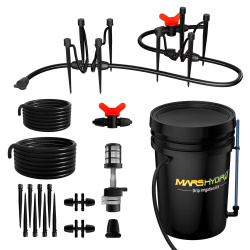Enzymes are critical for plant cultivation, as they participate in essential biochemical processes, such as nutrient metabolism, photosynthesis, respiration, and the transformation of phytochemicals. The appropriate presence and activity of enzymes can contribute to the health, growth, and productivity of plants.
Some of the main functions of enzymes in plant cultivation include:
Nutrient metabolism: Enzymes are involved in the metabolism of nutrients, such as carbohydrates, proteins, and lipids. This metabolic process allows plants to use the nutrients for growth, reproduction, and energy acquisition.
Photosynthesis: Photosynthesis is the process by which plants convert solar energy into chemical energy. In photosynthesis, enzymes are used to accelerate the chemical reactions required for the production of glucose and oxygen from water and carbon dioxide.
Respiration: During respiration, enzymes help release energy from inorganic molecules, such as carbohydrates. This process is essential for the growth and functioning of plants.
Transformation of phytochemicals: Enzymes are responsible for transforming certain phytochemicals, such as phytoretinols and phytosterols, into plant substances that are beneficial for plant growth and health.
The presence of suitable enzymes in the plant environment is important for their successful growth and health. Plant cultivators can use various techniques, such as adding enzymes to the soil or using biological fertilizers, to enhance the presence and activity of enzymes. This can lead to improved nutrient absorption, increased resistance to diseases and stress, and generally improved plant performance.
































